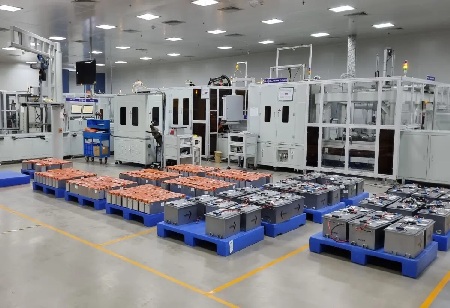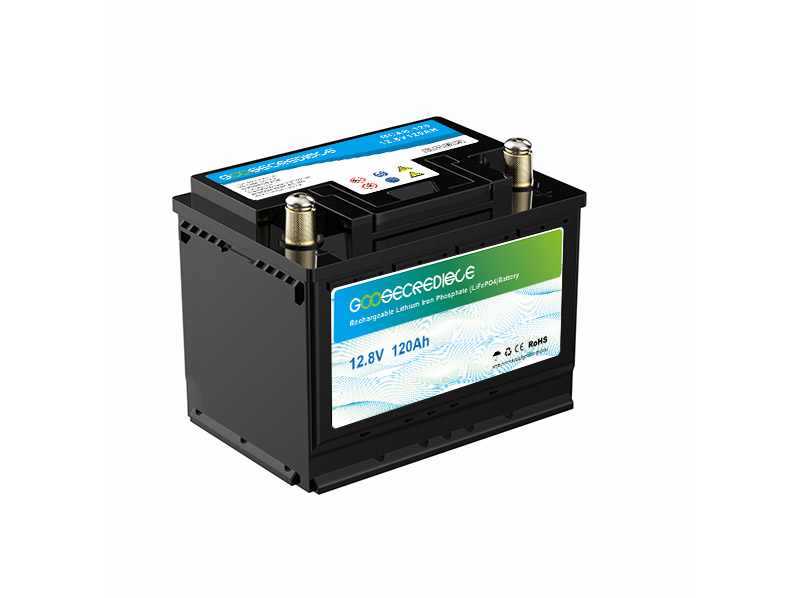Lifespan of LiFePO4 Batteries: Understanding the Longevity of Lithium-ion Technology
Lithium-ion batteries have become a popular choice for many different applications due to their high energy density and long cycle life. However, not all lithium-ion batteries are created equal. LiFePO4 batteries, in particular, have gained popularity due to their excellent cycling performance, long lifespan, and superior safety compared to other lithium-ion chemistries.
Understanding the lifespan of LiFePO4 batteries is essential for those who rely on these batteries for various applications, including electric vehicles, solar energy storage systems, and backup power supplies. In this article, we will explore the factors that affect the longevity of LiFePO4 batteries, as well as tips for maximizing their lifespan.
Factors Affecting LiFePO4 Battery Lifespan
1. Temperature
Temperature is one of the most critical factors that affect the lifespan of LiFePO4 batteries. High temperatures can accelerate the aging process of the battery, leading to reduced capacity and shorter cycle life. On the other hand, low temperatures can also have a negative impact on the battery\’s performance, causing it to lose capacity and reducing the number of cycles it can sustain.
Therefore, it is essential to store and operate LiFePO4 batteries within their recommended temperature range. Typically, the optimal temperature range for LiFePO4 batteries is between 15°C and 25°C.
2. Depth of Discharge
The depth of discharge (DOD) is another crucial factor that affects the lifespan of LiFePO4 batteries. DOD refers to the amount of energy that is drained from the battery before it is recharged. The higher the DOD, the shorter the battery\’s cycle life.
For LiFePO4 batteries, it is recommended to keep the DOD at around 80%. This means that the battery should not be discharged below 20% of its rated capacity. By avoiding deep discharge cycles, the battery\’s lifespan can be significantly extended.
3. Charging Voltage
LiFePO4 batteries require a specific charging voltage to ensure optimal performance and longevity. Charging the battery at a voltage that is too high can cause the battery to overheat, leading to reduced capacity and cycle life. On the other hand, charging the battery at a voltage that is too low can result in incomplete charging, reducing the battery\’s overall capacity.
It is recommended to charge LiFePO4 batteries at a voltage between 3.2V and 3.6V per cell. Charging the battery within this range will ensure that the battery is fully charged without causing any damage.
4. Charge Rate
The rate at which a LiFePO4 battery is charged can also affect its lifespan. Charging the battery at a high rate can cause the battery to overheat, leading to reduced capacity and cycle life. On the other hand, charging the battery at a low rate can result in incomplete charging, reducing the battery\’s overall capacity.
It is recommended to charge LiFePO4 batteries at a rate of 0.5C or less. Charging the battery at a lower rate will result in a longer charging time, but it will also help to extend the battery\’s lifespan.
Tips for Maximizing LiFePO4 Battery Lifespan
1. Store and operate the battery within its recommended temperature range.
2. Avoid deep discharge cycles by keeping the DOD at around 80%.
3. Charge the battery at the recommended voltage range of 3.2V to 3.6V.

4. Charge the battery at a rate of 0.5C or less.
5. Use a quality charger that is specifically designed for LiFePO4 batteries.
6. Avoid exposing the battery to extreme temperatures, water, or other harsh environments.
7. Regularly check the battery\’s voltage and capacity to ensure optimal performance.
In Conclusion
LiFePO4 batteries are an excellent choice for many different applications due to their long cycle life, superior safety, and excellent performance. Understanding the factors that affect their lifespan and implementing the tips outlined in this article can help to maximize their longevity and ensure optimal performance for years to come.
-
 Odată cu creșterea cererii de dispozitive electronice portabile, nevoia de baterii de mare capacitate, ușoare și durabile a devenit mai semnificativă. Bateriile cu litiu au apărut ca o alegere populară datorită densității mari de energie, duratei de viață lungi și ratei scăzute de auto-descărcare. Cu toate acestea, este posibil ca o singură baterie cu litiu să nu ofere suficientă putere pentru unele aplicații, motiv pentru care este necesar...Citeşte mai mult
Odată cu creșterea cererii de dispozitive electronice portabile, nevoia de baterii de mare capacitate, ușoare și durabile a devenit mai semnificativă. Bateriile cu litiu au apărut ca o alegere populară datorită densității mari de energie, duratei de viață lungi și ratei scăzute de auto-descărcare. Cu toate acestea, este posibil ca o singură baterie cu litiu să nu ofere suficientă putere pentru unele aplicații, motiv pentru care este necesar...Citeşte mai mult -
 Progresele tehnologice au permis crearea unor baterii mai eficiente, care oferă utilizatorilor performanțe optime. Una dintre aceste baterii este bateria cu litiu LiFePO4 de mare capacitate de 100 Ah. Această baterie este o soluție eficientă de alimentare care oferă numeroase beneficii, ceea ce o face o opțiune ideală pentru diverse aplicații. Unul dintre avantajele principale ale bateriei cu litiu LiFePO4 de mare capacitate de 100 Ah...Citeşte mai mult
Progresele tehnologice au permis crearea unor baterii mai eficiente, care oferă utilizatorilor performanțe optime. Una dintre aceste baterii este bateria cu litiu LiFePO4 de mare capacitate de 100 Ah. Această baterie este o soluție eficientă de alimentare care oferă numeroase beneficii, ceea ce o face o opțiune ideală pentru diverse aplicații. Unul dintre avantajele principale ale bateriei cu litiu LiFePO4 de mare capacitate de 100 Ah...Citeşte mai mult -
 As the world becomes more dependent on renewable energy, the demand for energy storage solutions has grown exponentially. Lithium-ion batteries have emerged as the go-to technology for energy storage, but they are not without their drawbacks. One of the most significant drawbacks of traditional lithium-ion batteries is that they are prone to thermal runaway, which can cause fires and explosions....Citeşte mai mult
As the world becomes more dependent on renewable energy, the demand for energy storage solutions has grown exponentially. Lithium-ion batteries have emerged as the go-to technology for energy storage, but they are not without their drawbacks. One of the most significant drawbacks of traditional lithium-ion batteries is that they are prone to thermal runaway, which can cause fires and explosions....Citeşte mai mult -
 With the advancement in technology, the power demands of military equipment have increased significantly. To ensure the efficient functioning of these devices, the use of cutting-edge power solutions has become essential. One such solution is the military lithium battery, which offers numerous advantages over traditional power sources. In this article, we will explore the various features and benefits of military...Citeşte mai mult
With the advancement in technology, the power demands of military equipment have increased significantly. To ensure the efficient functioning of these devices, the use of cutting-edge power solutions has become essential. One such solution is the military lithium battery, which offers numerous advantages over traditional power sources. In this article, we will explore the various features and benefits of military...Citeşte mai mult -
 Lithium Iron Phosphate (LiFePO4) batteries are a type of rechargeable battery that has gained popularity in recent years due to their high energy density, long cycle-life, and low toxicity. They are commonly used in electric vehicles, renewable energy storage systems, and power tools. In this article, we will explore the features and benefits of LiFePO4 batteries and provide a comprehensive...Citeşte mai mult
Lithium Iron Phosphate (LiFePO4) batteries are a type of rechargeable battery that has gained popularity in recent years due to their high energy density, long cycle-life, and low toxicity. They are commonly used in electric vehicles, renewable energy storage systems, and power tools. In this article, we will explore the features and benefits of LiFePO4 batteries and provide a comprehensive...Citeşte mai mult -
 Pe măsură ce lumea continuă să devină tot mai dependentă de tehnologie și electricitate, nevoia noastră de soluții eficiente și fiabile de stocare a energiei devine din ce în ce mai importantă. Aici intră în joc bateriile cu litiu fier fosfat (LiFePO4). O baterie LiFePO4 de 12V 100Ah este o alegere excelentă pentru stocarea energiei datorită densității mari de energie, duratei de viață lungi și caracteristicilor de siguranță...Citeşte mai mult
Pe măsură ce lumea continuă să devină tot mai dependentă de tehnologie și electricitate, nevoia noastră de soluții eficiente și fiabile de stocare a energiei devine din ce în ce mai importantă. Aici intră în joc bateriile cu litiu fier fosfat (LiFePO4). O baterie LiFePO4 de 12V 100Ah este o alegere excelentă pentru stocarea energiei datorită densității mari de energie, duratei de viață lungi și caracteristicilor de siguranță...Citeşte mai mult -
 As a key component of electric vehicles, electric vehicle batteries have a significant impact on the performance, range and safety of electric vehicles. The following is a detailed introduction to some of the key technical points and performance characteristics of electric vehicle batteries: Battery Type Lithium-ion battery: The most common type of battery used in electric vehicles. Lithium-ion batteries have...Citeşte mai mult
As a key component of electric vehicles, electric vehicle batteries have a significant impact on the performance, range and safety of electric vehicles. The following is a detailed introduction to some of the key technical points and performance characteristics of electric vehicle batteries: Battery Type Lithium-ion battery: The most common type of battery used in electric vehicles. Lithium-ion batteries have...Citeşte mai mult

